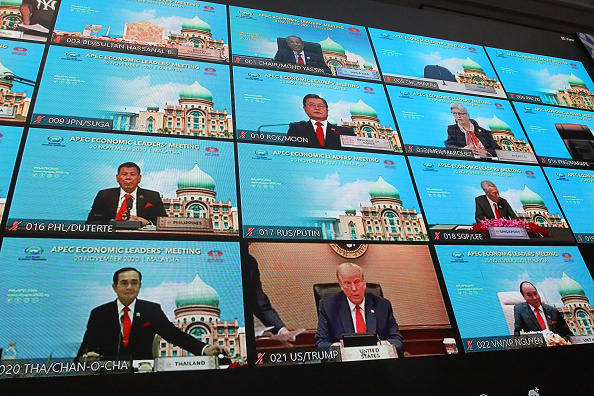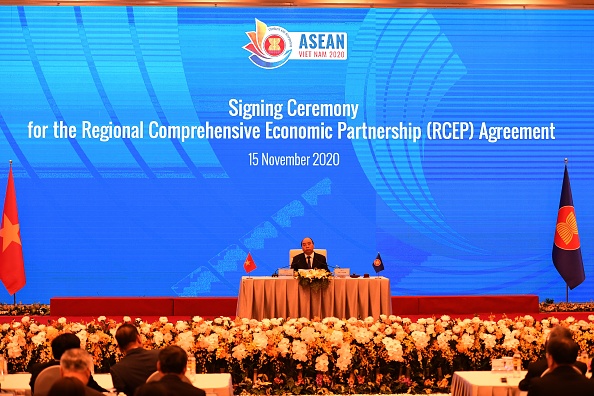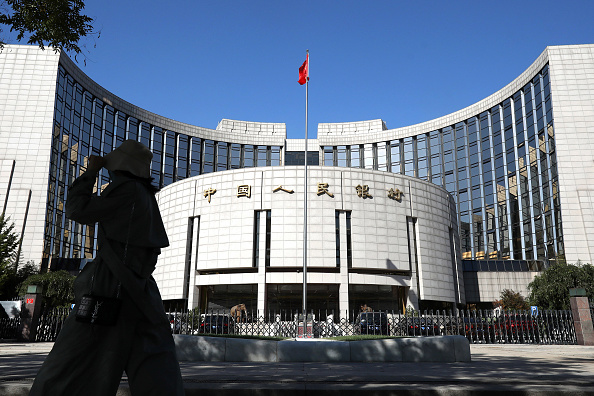
 Multilateralism on the Move
Multilateralism on the MoveLeaders of the Asia-Pacific Economic Cooperation (APEC), an inter-governmental forum for 21 member economies in the Asia-Pacific region, held a virtual summit this week addressing COVID-19 and its impact on the global economy. Hosted by Malaysian Prime Minister Muhyiddin Yassin, the summit focused on how the bloc can mitigate the economic threat of the pandemic, while preserving public and global health.
The member countries, which comprise 60% of the global gross domestic product (GDP), have had vastly different responses to the pandemic, ranging from New Zealand's near elimination of the virus, to Mexico's rampant spread. Many of the countries in the bloc are currently engaged in tense bilateral relationships, including China, Australia, and the United States, although many countries are hopeful for an improvement in relations under President-elect Joe Biden.
This is the first APEC meeting since 2018, after last year's Chile summit was canceled due to domestic unrest. Underscoring tensions between China and the U.S. were Xi Jinping's comments criticizing the U.S. for "forming a small circle to keep others out." President Trump is participating for the first time since 2017, but has canceled his scheduled appearance at the APEC CEO meeting Friday. Read more on the current state of U.S.-China relations in Tao Wenzhao's latest article for China-US Focus.
 "A victory of multilateralism and free trade"
"A victory of multilateralism and free trade"While the U.S. is a part of the APEC bloc, the Regional Comprehensive Economic Partnership (RCEP) is the latest trade pact to exclude Washington. Fifteen other countries, including China and the ASEAN nations, came together on November 15th to jumpstart the massive free trade pact, which some call one of the largest in history.
The partnership, which covers over 2 billion people between the 15 countries, could end 65% of trade tariffs between the countries and be bigger than both the US-Mexico-Canada Agreement and the European Union. Premier Li Keqiang called the signing "a victory of multilateralism and free trade," despite accusations that the pact represents "shallow" integration and few binding requirements.
 Going Negative
Going NegativeChina's debt is a top priority for Chinese officials this week, as the world's most populous country looks to move past the pandemic. China sold negative-yielding debt for the first time in the country's history this week, signaling expectations that the West will continue to face economic challenges in the months to come. The €4 billion, or approximately $4.74 billion sale, was made to investors in Europe, and drew lots of attention from European and American investors, as those regions face even lower interest rates at home.
Prepared by China-US Focus editorial teams in Hong Kong and New York, this weekly newsletter offers you snap shots of latest trends and developments emerging from China every week, while adding a dose of historical perspective.
- 2020-11-14 Staying Tough
- 2020-11-07 Battleground Ballots
- 2020-10-30 Knock Knock
- 2020-10-24 Looking Back and Moving Forward
- 2020-10-16 COVID Cluster
- 2020-10-10 Election Looming
- 2020-10-03 Golden Week Kicks Off
- 2020-09-26 Virtual Diplomacy
- 2020-09-18 Digital Domain
- 2020-09-12 Reframing the Ground Rules
- 2020-09-05 Reciprocity in Action
- 2020-08-29 Who’s Tougher on China?
- 2020-08-22 To Talk, Or Not To Talk
- 2020-08-15 Domestic Circulation
- 2020-08-07 Fraying Relations
- 2020-08-01 Turning Tides
- 2020-07-24 Up in Smoke
- 2020-07-17 Status Stripped
- 2020-07-10 A Historic Moment
- 2020-07-03 Handover Tested